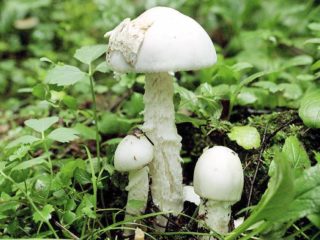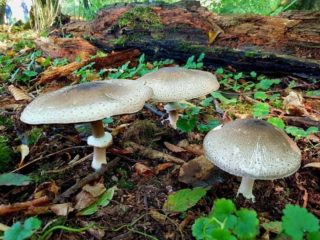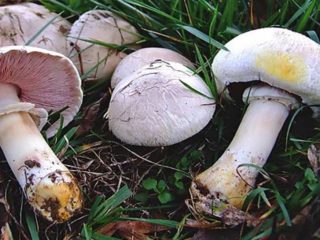Content
Swollen catatelasma is a mushroom of Far Eastern origin. A fairly large representative of his kingdom, visible from afar in the forest during collection. Possesses good taste and versatility in preparation. Virtually odorless. It has several doubles with a common area.
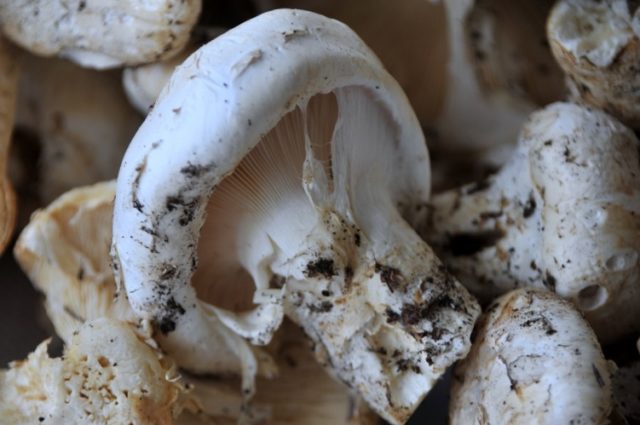
The fruit bodies of the swollen catatelasma are similar to ordinary store mushrooms.
Where the bloated catatelasma grows
The main range of this species is in the coniferous and mixed forests of the Far East. It is noticed that the mycorrhiza of the catatelasmus swollen forms more often with conifers. There is evidence of the discovery of the species in North America (the mycelium was found once) and Europe. In the latter case, the facts of its discovery in Germany and France were repeatedly recorded.
What does the Sakhalin champignon look like?
At the beginning of life, the fruiting body is hidden under a common veil that has a brownish tint. As it grows, it breaks at the point of contact with the cap. But even after rupture, the veil protects the hymenophore for a long time.
The hat has a diameter of 8 to 30 cm. At the beginning of its life cycle, it is round, then convex. Old mushrooms have a flat cap. The hymenophore is lamellar, extremely dense.
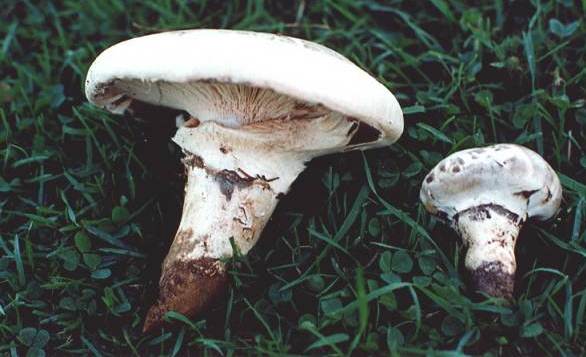
Young mushrooms with an unbroken veil are similar to common champignons.
The size of the leg can be up to 17 cm in length and 5 cm in diameter. At the base, it is traditionally narrowed, but in the middle it has a pronounced bulge. Most of the stem is located underground, so when harvesting, the fruit body has to be dug out a little. The ring remains for a fairly long period. Sometimes it does not disappear for the entire duration of the fruiting body.
The pulp of catatelasma is swollen in consistency and taste like ordinary mushrooms.
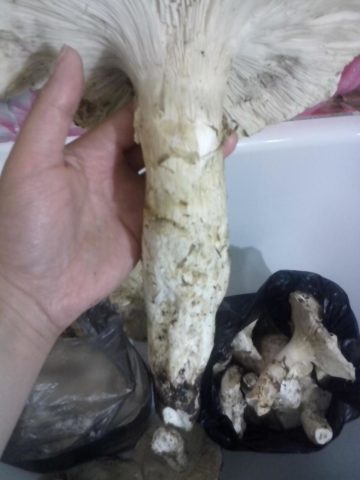
The dimensions of the swollen catatelasm can be quite impressive.
Is it possible to eat swollen catatelasma
This species is a high quality edible mushroom. Due to its rather high unpretentiousness, in a number of countries it is grown industrially.
False doubles
All doppelgangers of the Sakhalin mushroom are edible. In addition, they have overlapping habitats. Therefore, although confusion in the definition of species affiliation will arise, it will not lead to critical consequences. The twins of the swollen catatelasm are considered below.
Champignon imperial
Has slight differences in the smell and color of the cap. In Sakhalin, it has a white tint, wrinkling and cracking with age. The imperial color of the cap is yellow, later it turns brown. No cracking is observed.
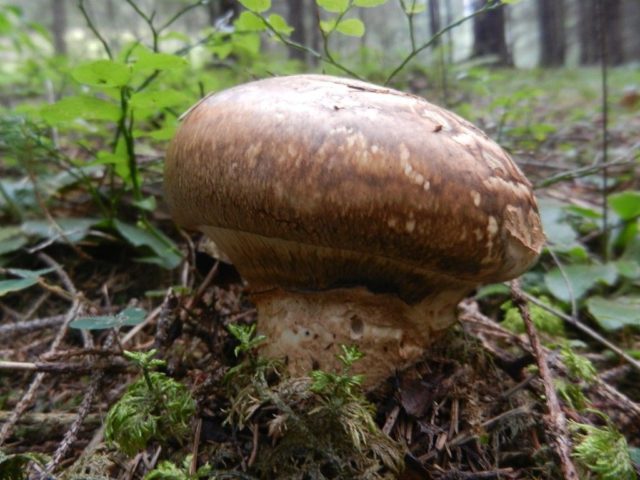
The brown imperial champignon hat has no signs of aging
The odor difference is actually minor. Sakhalin champignon has a faint mushroom smell, and the imperial aroma contains slight flour notes. It is not easy to distinguish between these species using the sense of smell, but with sufficient experience it can be done almost immediately.
Matsutake
Another twin of the swollen catatelasma. Its name is translated from Japanese as "pine mushroom". This is true, since mycorrhiza of this species occurs exclusively on conifers.
The main differences from the Sakhalin champignon:
- the cap is brown throughout the existence of the fruiting body;
- the flesh is white, with a strong spicy odor;
- long dark brown leg of equal thickness.
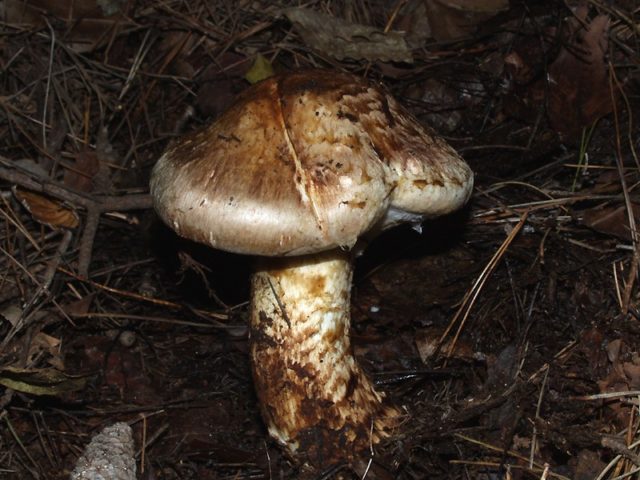
Often, the matsutake hat cracks at the edges, and its flesh becomes visible.
This twin grows at the foot of the trees, it needs thick roots for symbiosis. Fruit bodies are small, hiding under a thick layer of foliage. It is much more widespread than swollen catatelasma. It can be found in Japan, China, Korea, North America. Among all conifers, Matsutake prefers pines, but in the absence of them, the mycelium can also enter into symbiosis with fir and spruce.
It is of increased value for oriental cuisine. In the countries of the Western Pacific region, it is in great demand among gourmets.
Collection rules and use
The collection is carried out from early summer to mid-autumn. It is recommended to collect young fruiting bodies, as the old ones become too elastic and even difficult to cut with a knife.
The application is universal: bloated catatelasma is boiled, stewed, fried, pickled. Drying and freezing are allowed.
Conclusion
The swollen catatelasma growing in the forests of the Far East is a delicious mushroom from the Tricholomov family. Distinctive features of this species are good taste and lack of unpleasant odor, which explains its popularity among consumers. The fungus grows throughout the summer and most of the fall.

